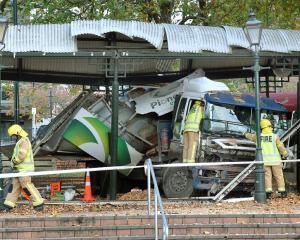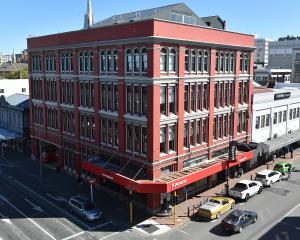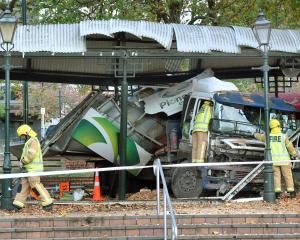A world-class separated cycle network will help attract the highly skilled, high-demand employees Dunedin's economy needs, city leaders say.
Otago Chamber of Commerce chief executive Dougal MacGowan said it was getting ever harder to lure the world's best and brightest without promising them a modern cycling network.
''Without a doubt, those are some of the messages we're hearing.
''I've had businesses tell me their employees, top-end people, come from an environment where they are used to cycling to work.
''And they feel unsafe doing that on some roads in Dunedin.''
He said there were clear messages coming from Dunedin's tertiary education sector that doctors, professors and doctoral students expected such infrastructure.
''It provides another selling point for the city really, especially if we can be a New Zealand leader on that.
''We've got a lot of really high-tech industries here in Dunedin, and these are really switched on dynamic companies attracting the best and finest.''
Two of those ''best and finest'' worked for Dunedin's Animation Research. General manager Sophie Luther said a cycle culture ''was just what you did'' in Europe.
''I've lived and worked in Spain and in England and cycling to work was just what you did.
''It was easy. So I've seen it in action, I know how well it works, and I think it will be amazing for Dunedin.''
Animation Research software developer Dr Stefanie Zollmann said cycling to work had always been part of her life when she lived in her home country Germany and in Austria.
''I just really like to use my way to work as a small workout, because as a computer programmer, I just sit on my computer the whole day.
''So it's really important I get the chance to move.''
Dunedin Mayor Dave Cull said he often heard reports from Otago University that cycle infrastructure mattered to prospective employees.
''They find that when they're recruiting academics the most common question they get back from them is: `Can I bike in Dunedin?'''These are people who could probably find positions in any city in the world. They're highly skilled, highly sought-after.''
University of Otago vice-chancellor Prof Harlene Hayne said the university strongly supported the cycling network. They were ''a common feature of most great university towns around the world''.
Prof Hayne said being able to safely cycle to the university increased staff and students' health and wellbeing, plus reduced the number of cars on the road and around campus.
''These benefits will help attract both students and staff to our city to live, work and study.''
Dunedin city councillor Jinty MacTavish said major global cities were investing heavily in cycling ''as a key driver of 21st-century economic success'', but the long-term benefits were much broader.
A recent Auckland study considering injury, physical activity, fuel costs, air pollution and carbon emissions concluded cycle infrastructure yielded benefits ''10 to 25 times greater than costs''.












